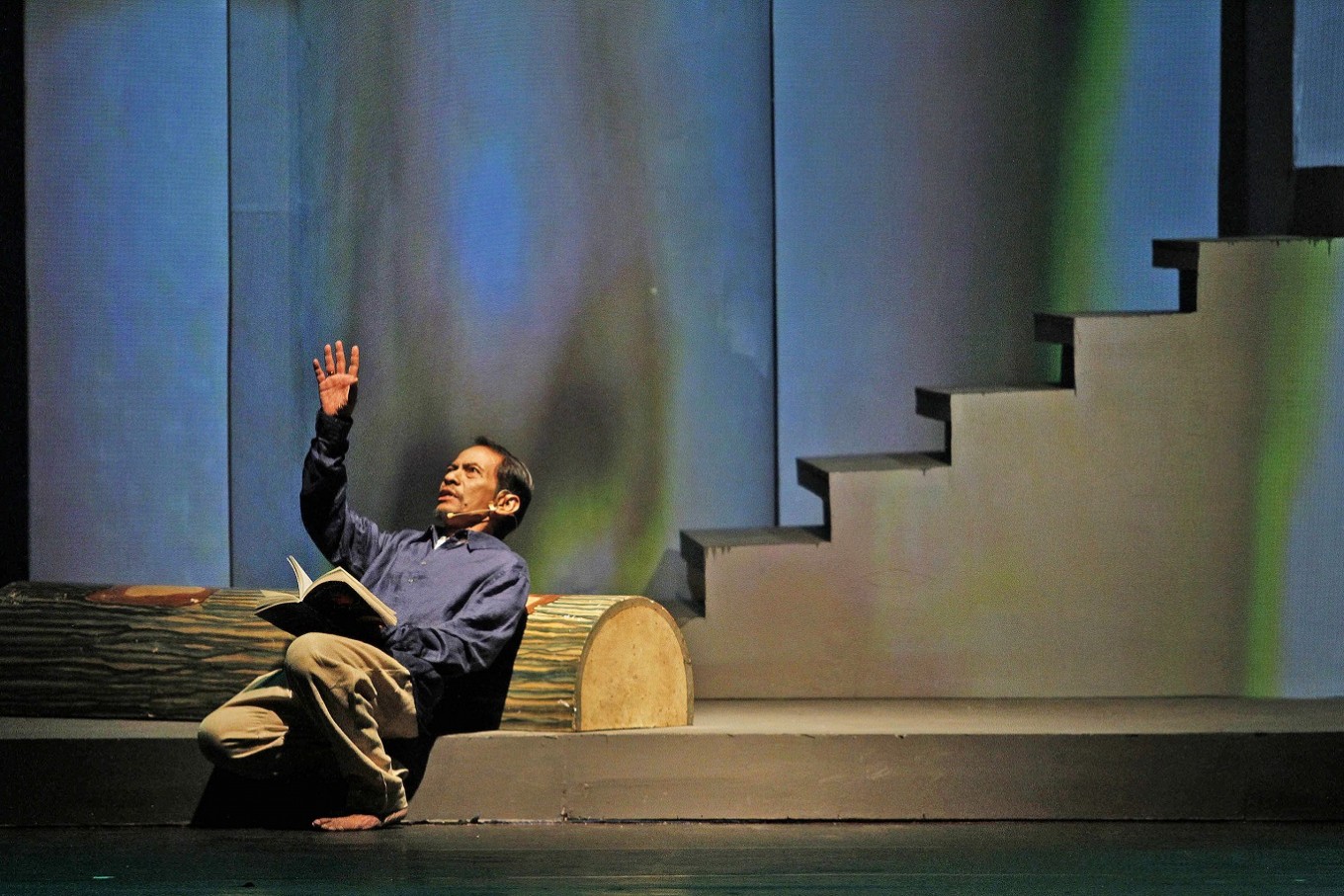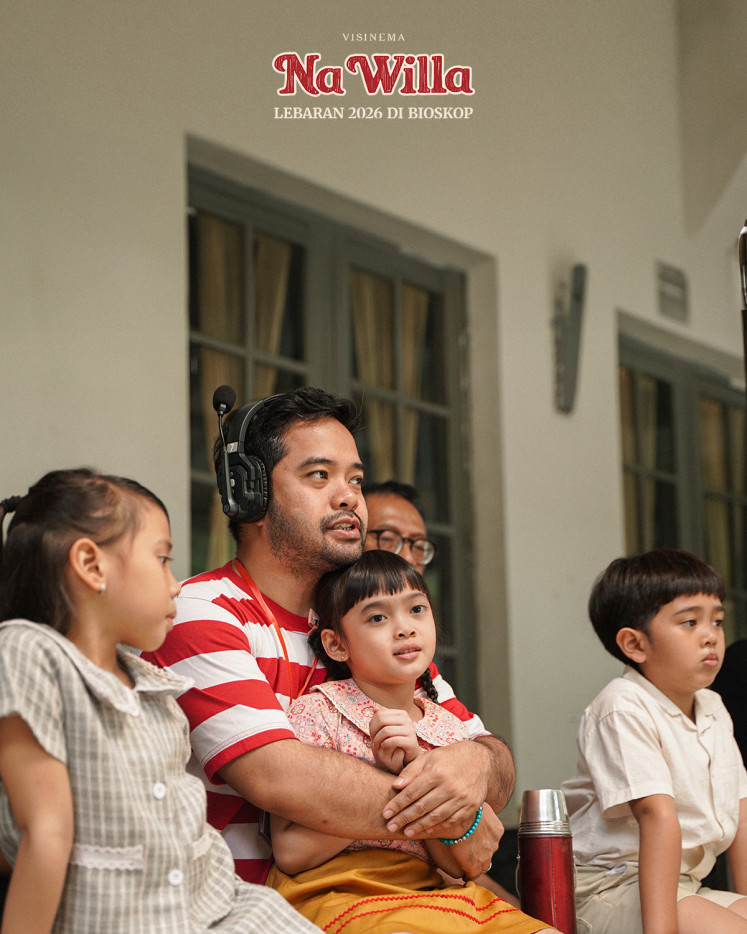Popular Reads
Top Results
Can't find what you're looking for?
View all search resultsPopular Reads
Top Results
Can't find what you're looking for?
View all search results‘Manusia Istana’: More than just a poetry reading
Enjoying the roller-coaster ride at Radhar Panca Dahana’s poetry reading.
Change text size
Gift Premium Articles
to Anyone
P
oetry readings are usually solemn with hardly any dramatization from the readers. Their main focus is usually on the artistic delivery of the poems alone. That’s why poetry readings usually appeal only to those who consider themselves literary and poetry enthusiasts.
But what happens when the elements of poetry readings are combined with expressive dramatizations along with visual effects and stage plays?
The result is an entertaining yet emotionally draining roller-coaster ride and this kind of sensation was what the audience seemed to feel at the recent readings of Radhar Panca Dahana’s Manusia Istana (Palace Men) poem compilation.
(Read also: Radhar Panca Dahana: Uncovering dirty politics layer by layer)
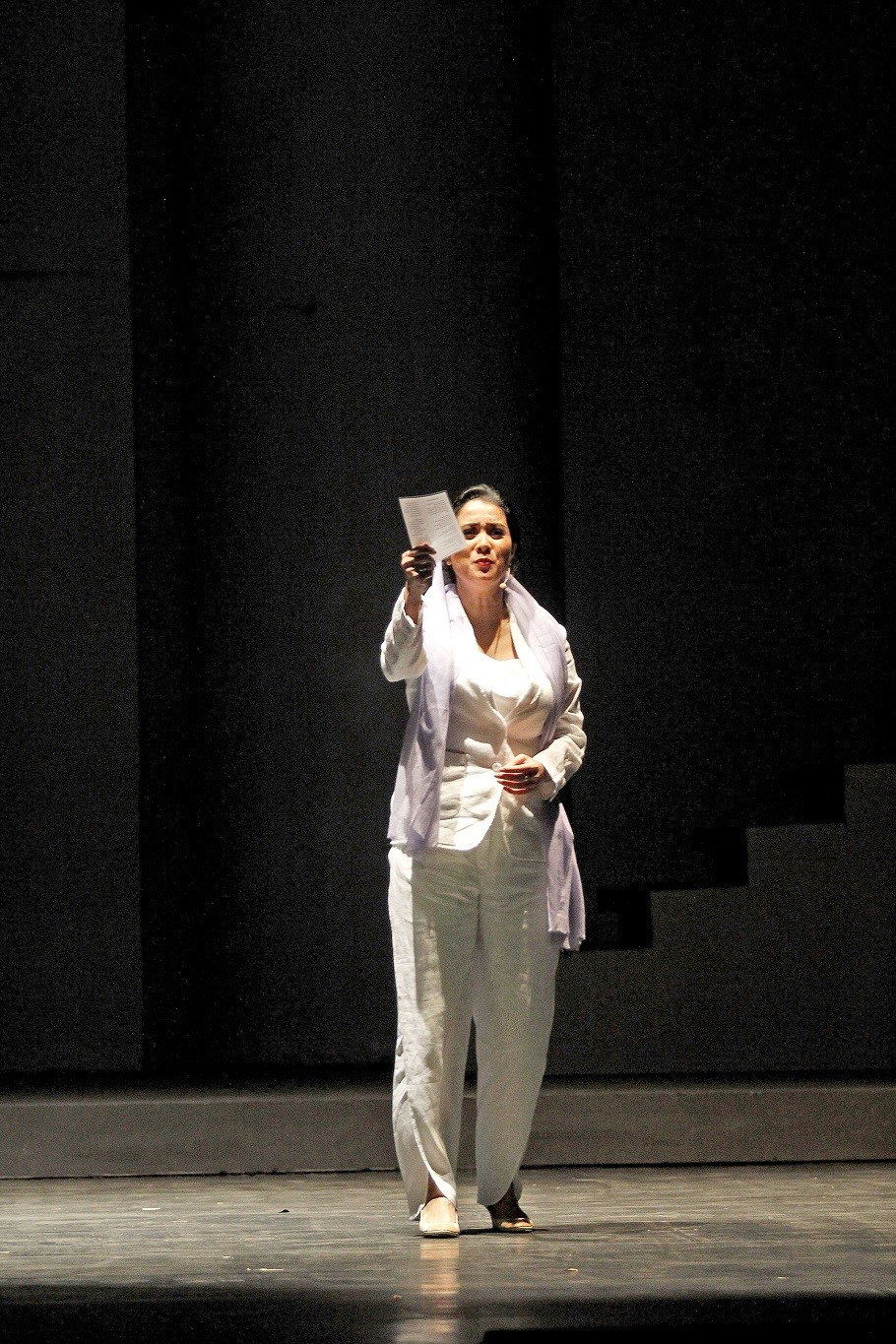 Marcella Zalianty(JP/Bimo Raharjo)
Marcella Zalianty(JP/Bimo Raharjo)
Staged at the Theater Jakarta in Taman Ismail Marzuki on the night of Chinese New Year, the Manusia Istana poetry reading featured 20 of Radhar’s poems, all of which were highly political and filled with protests over various social issues.
Reading the poems alongside Radhar were six female artists: Olivia Zalianty, Marcella Zalianty, Dinda Kanya Dewi, Maudy Koesnaedi, Prisia Nasution and Cornelia Agatha.
“We want to utilize our artistic approach [and] to raise our concern and express our feelings, thoughts, dreams and imaginings about our country, which has been constantly marred by social troubles,” Radhar said. “We hope what we do here can inspire our political elites, who are also watching this reading, so they can think about changing themselves before they consider anything about changing the nation. We hope we can make them realize about the horrible deeds they have done to the people,” he added.
It was very noticeable from the list of performers that Radhar was the only male and he said there was a reason for this.
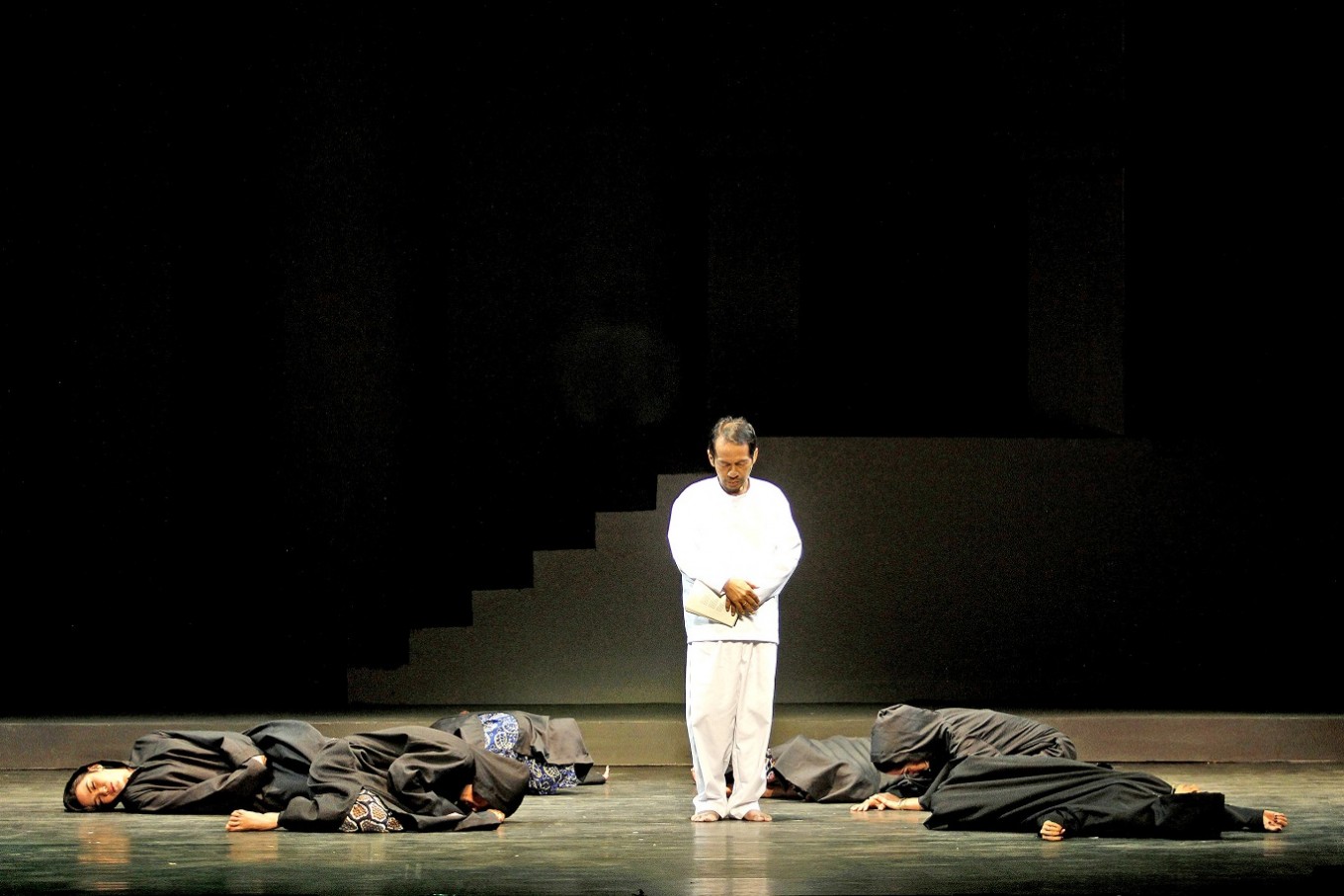 The end: The final segment of Manusia Istana has Radhar surrounded by six female artists.(JP/Bimo Raharjo)
The end: The final segment of Manusia Istana has Radhar surrounded by six female artists.(JP/Bimo Raharjo)
“All of the poems read during the performance have very masculine words and diction. I do not want them to be too obvious when they are being read. Therefore, I need to make them sound gentler by using the feminine voice,” he said.
Radhar did not hold his punches at the country’s political elites from the start of the reading.
He began the show by reading two of his poems in a row. The first one, entitled “Politik Itu Hutan, Anakku” (Politics is a Jungle, Child), was a perfect opener as the poem conveyed a message to all determined yet naïve young politicians about the brutal nature of politics, which could turn friends into bitter enemies and vice versa in an instant.
(Read also: Megawati hosts play to mark 70th birthday)
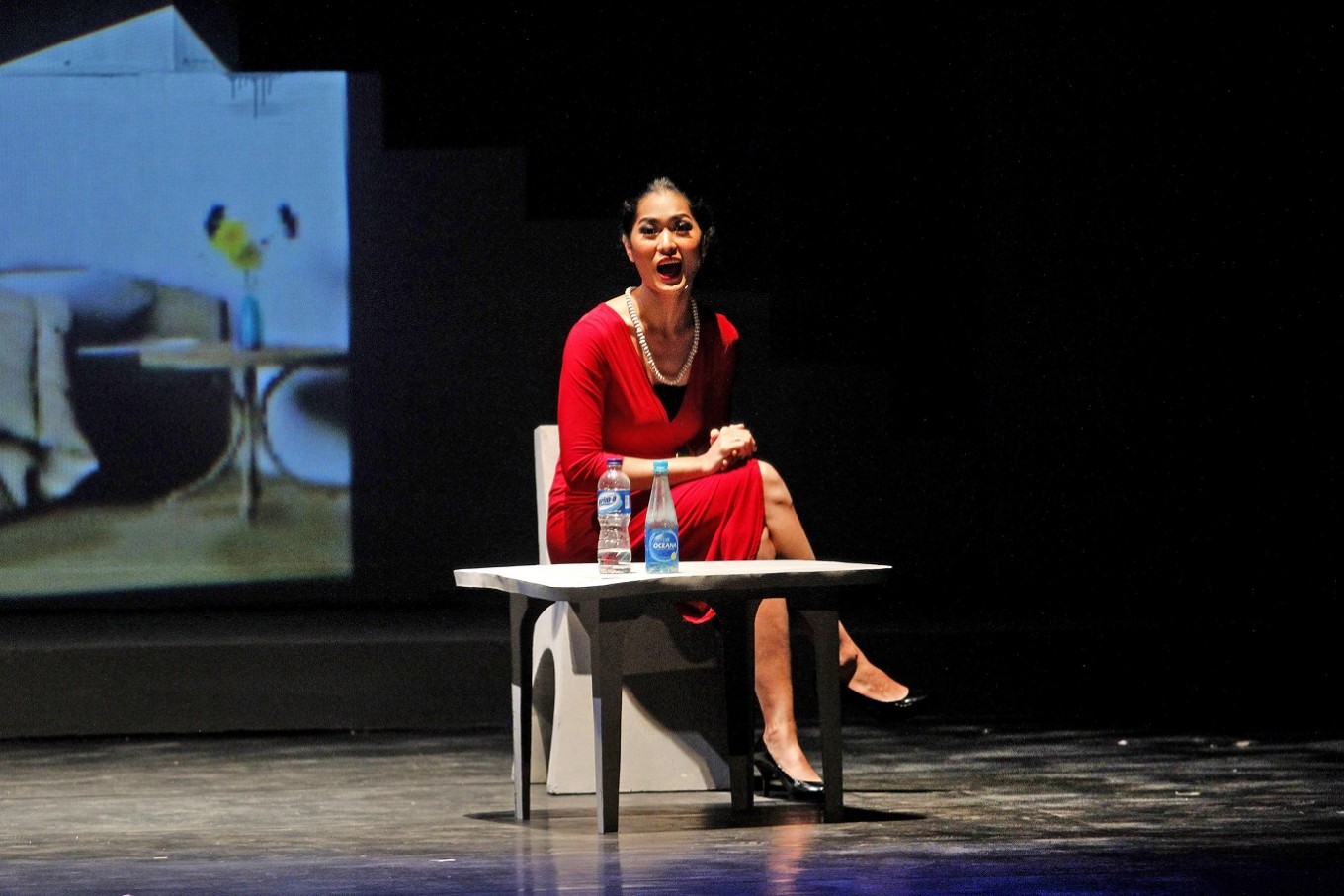 Prisia Nasution(JP/Bimo Raharjo)
Prisia Nasution(JP/Bimo Raharjo)
Then like a medley of songs, Radhar followed up his opener with another poem of his called “Ekonomi Plastik” (Plastic Economy), which commented on how excessive consumerism in a modern society gradually dehumanizes individuals.
Afterwards, Olivia and the other artists took turns reading Radhar’s poems. This time, the poems focused on different issues ranging from agrarian, direct mass issues, democracy and the corrupted political system. What made the performance of Manusia Istana more than just a regular poetry reading was its innovative presentation from the start to the end.
Radhar, who also acted as the director of the performance, provided some surprises in every part of the reading, making the whole show not only enlightening but also entertaining. For example, after Dinda’s fiery presentation of “Kampanye Hari Kelima” (The Fifth Day of the Campaign), the audience was given a surprise by Olivia, who suddenly showed up sitting amongst them, reading another poem, “Parlemen Gerutu” (Grumbling Parliament).
Olivia’s sudden appearance in the audience was not the only surprise provided in the segment as moments later her hologram version appeared on the stage.
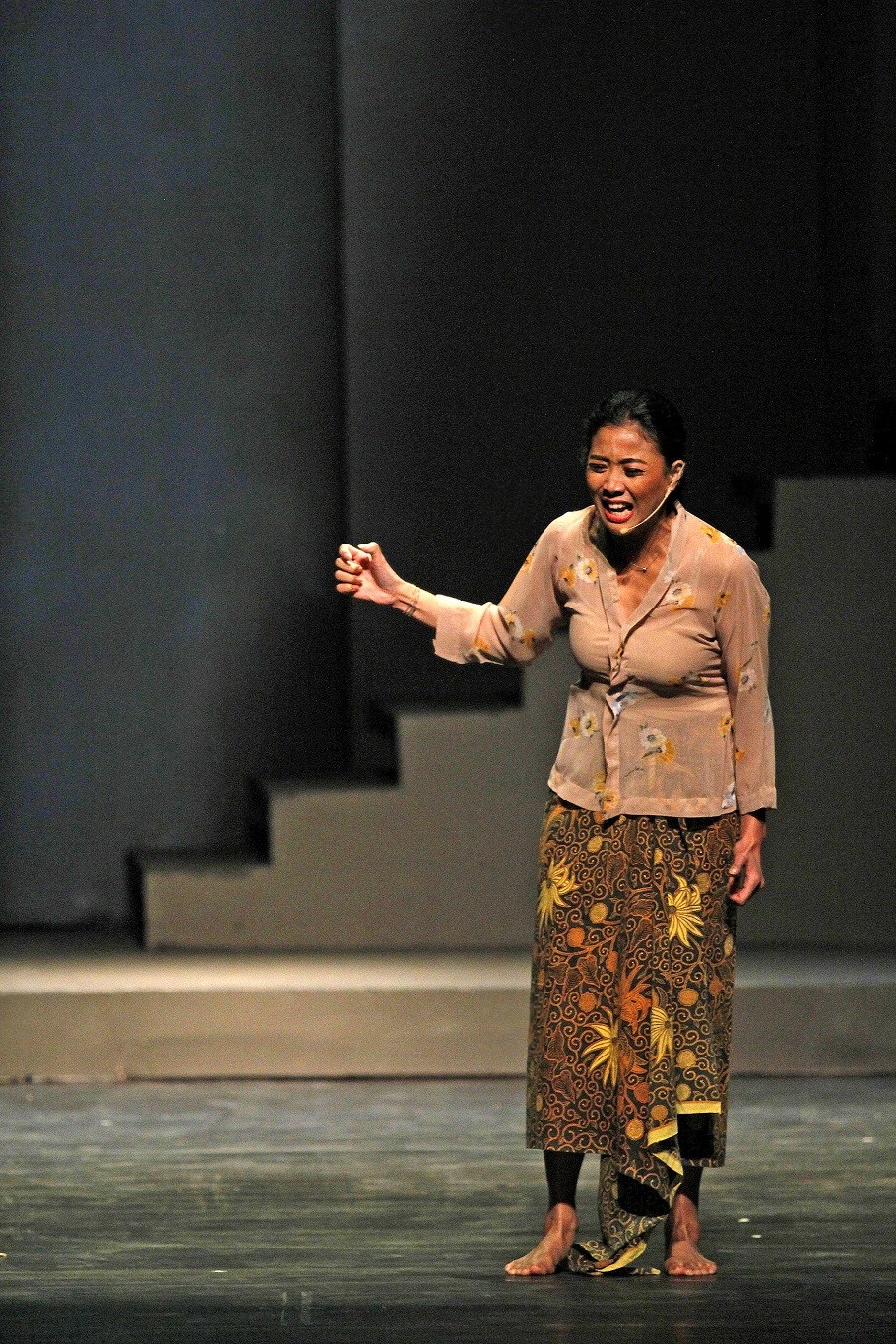 Olivia Zalianty(JP/Bimo Raharjo)
Olivia Zalianty(JP/Bimo Raharjo)
The real-life Olivia and her hologram then took turns reading each passage of Radhar’s poem, making this segment one of the main highlights of the performance.
Manusia Istana also featured numerous innovative uses of the stage and props. Romanstyle pillars and ruins were set as the stage backdrop and the changes in each segment were marked by moving platforms and stairs.
Video works and projections by visual mapping manager Yandi, who had previously worked with Radhar on Homo Reptilicus (2015), became perfect complements for the stage play.
Yandi’s works, which changed constantly in every segment, brought a dystopian aura into the reading.
The display of Radhar’s innovative approach in the performance reached its peak in the final segment. The poet, draped in white, read out his poem called “Hari Penghabisan” (The Final Day) accompanied by the female readers, who were dressed in black.
The final segment featured a reading with different keynotes and tempo, but it retained its harmony.
With Radhar’s distinctive masculine voice, the performance gave the stage a mystical aura as the other readers chanted the poem with different voices.
With a video shot of a desert as the background, the final segment brought the audience to another realm filled with heartache and despair.

